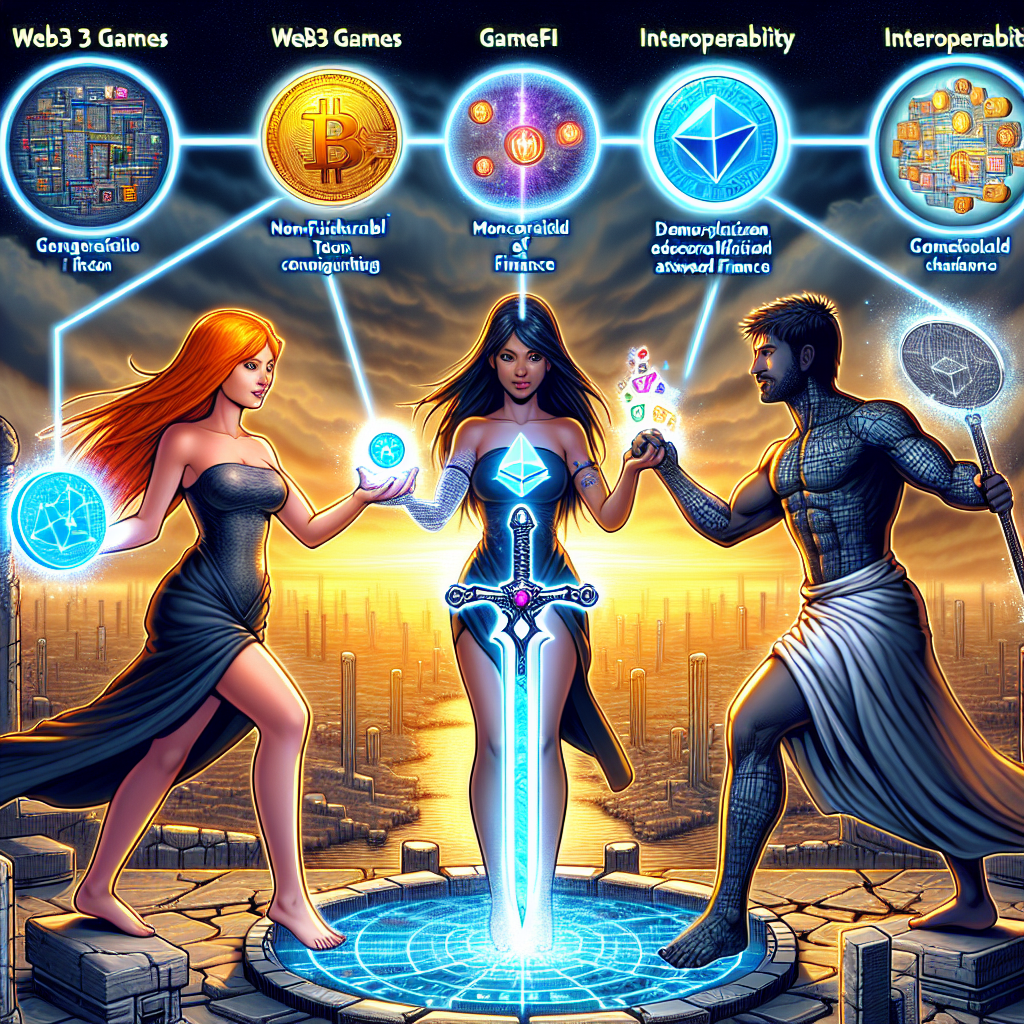Breaking Barriers: The Web3 Gaming Revolution
The Rise of Web3 Games: Redefining Digital Entertainment
\n\nThe gaming industry is witnessing a revolutionary shift with the integration of blockchain technology and the advent of Web3 games. These innovative games are changing how players interact with digital worlds, enabling true ownership, interoperability, and unique economic opportunities. As more gamers and developers embrace this paradigm shift, the landscape of digital entertainment continues to evolve.
\n\nWhat Are Web3 Games?
\n\nWeb3 games are decentralized applications (dApps) that leverage blockchain technology to offer players verifiable ownership of in-game assets. Unlike traditional games, where items are stored on centralized servers, Web3 games use non-fungible tokens (NFTs) and smart contracts to secure and authenticate digital assets. This enables gamers to trade, sell, or rent their in-game possessions with real-world value.
\n\nWhy Web3 Games Matter
\n\nWeb3 games are significant because they empower players to be more than just participants; they become stakeholders. Players can genuinely own, manage, and profit from their in-game items, blurring the line between playing for fun and earning a livelihood. This new player-centric model is fostering a more inclusive and economically dynamic gaming ecosystem.
\n\nTo dive deeper into Web3 games and their impact, check out this comprehensive article by Decrypt.
\n\nEconomic Opportunities in GameFi
\n\nGameFi, a fusion of entertainment and decentralized finance (DeFi), is creating unprecedented economic opportunities within virtual environments. In GameFi, players can earn tokens and other rewards, contributing to a play-to-earn (P2E) model that has gained substantial traction.
\n\nUnderstanding GameFi Mechanics
\n\nGameFi employs blockchain's decentralized and public ledger characteristics to enhance visibility and trust. Players can earn by completing tasks, battles, or quests, often receiving cryptocurrency or NFTs as rewards. This structure not only adds an investment aspect to gaming but also attracts a wide range of players eager to monetize their gaming skills.
\n\nThe Role of DAOs in GameFi
\n\nDecentralized Autonomous Organizations (DAOs) play a pivotal role in Web3 games by distributing governance and decision-making power to the community. In many GameFi projects, DAOs determine game updates, asset release schedules, and even tokenomics. This democratic approach ensures that all stakeholders have a voice, invigorating community involvement and support.
\n\nFor more insights on how GameFi is reshaping gaming economics, visit Crypto Briefing.
\n\nThe Impact of Interoperability in Blockchain Games
\n\nInteroperability in blockchain games promises a future where players can use their assets seamlessly across different games and platforms. This technological advancement eliminates the confines of individual games, offering players more freedom to utilize and leverage their assets.
\n\nCross-Platform Utility
\n\nInteroperability is built on the idea that players should not be restricted to a single game's framework. Through standardized protocols and blockchain technology, in-game items or NFTs can become portable entities that retain their value and utility across different ecosystems. This transforms the gaming experience from isolated encounters into a continuous, unified journey.
\n\nThe Future of Gaming
\n\nThe dream of gaming without boundaries is increasingly becoming a reality, fostering collaborations between developers and platforms to build interconnected experiences. This evolution heralds new game genres and entirely novel gameplay mechanics that benefit from shared resources and assets.
\n\nExplore more about the growth of interoperable blockchain games at VentureBeat.
\n\nConclusion: Embracing the New Era of Gaming
\n\nThe convergence of blockchain technology with gaming has launched a transformative era for digital entertainment. Web3 games, GameFi ecosystems, and interoperability are redefining the industry's boundaries. As we stride further into this digital frontier, both developers and players hold the power to shape a more decentralized, inclusive, and economically engaging gaming world.
